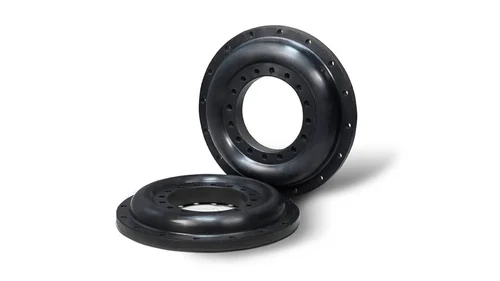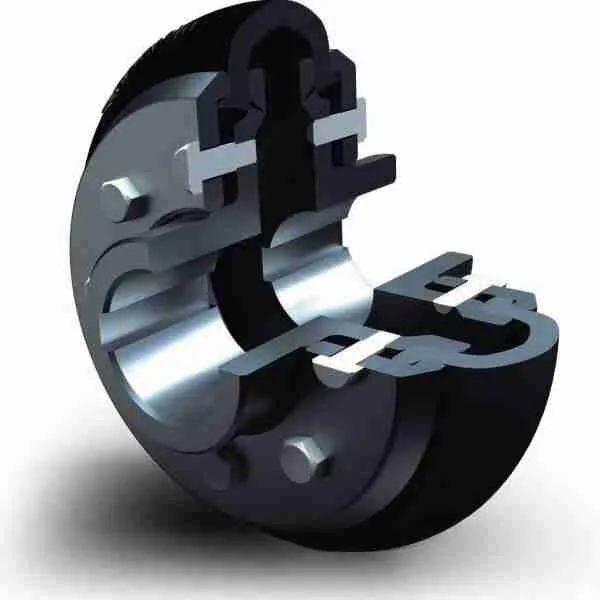Product Description
Car Industry
LTR is an expert in manufacturing all kinds of components for the automotive and motorcycle industry. We are IATF16949:2016 certified in order to fully satisfy the requirements of this industry.
Our production includes O rings, gaskets, seals, grommets, bellows, shock absorbers, dampers, cushions, sleeves, isolators, couplings, bushings, boots, covers, bumpers, pipes, hoses, tubes and many other pieces which are mainly manufactured in ACM, AEM, BR, CR, ECO, EPDM, FKM, FVMQ, HNBR, NBR, NR, SBR, SIR to meet the physical properties specified by ASTM D2000 and SAE J200 documents.
Products above are only examples to show Shun Tai Rubber’s core competences. All our rubber components are customised and made to order only. No standard product or catalogue is available.
Technical data
| Compound: Colour: | ||||||||||||||||||
| Base Polymer: Specification: | ||||||||||||||||||
| MAIN SPECIFICATION |
MEASURE UNITS |
REQUIRED VALUE | TESTED VALUE | TEST METHOD | ||||||||||||||
| HARDNESS | Sh-A | 70+/-5 | 69 | ASTM D2240 | ||||||||||||||
| SPECIFIC GRAVITY | g/mm^3 | \ | 1.176 | |||||||||||||||
| TENSILE STRENGTH |
Mpa | \ | 8.62 | ASTM D412 | ||||||||||||||
| ELONGATION | % | \ | 628.11 | ASTM D412 | ||||||||||||||
| Tear Strength | kg/cm | \ | 27.38 | ASTM D624 | ||||||||||||||
| SPECIFICATION CHANGE | ||||||||||||||||||
| TEST MEANS |
TIME h |
TEMP ºC |
HARDNESS | TENSILE STRENGTH |
ELONG.AT BREAK |
VOLUME | WEIGHT | |||||||||||
| required test | required test | |||||||||||||||||
| △ SHORE A | % | % | △% | △% | ||||||||||||||
Products above are only examples to show Shui Tai Rubber’s core competences. All our rubber components are customized and made to order only.No standard product or catalogue is available.
Company Profile
We are a specialized rubber parts manufacturer with over 30 years of manufacturing experience. Our company mainly produces rubber parts for medical appliances, household appliances, electronic products, automobiles and toys.
Covering an area of 3500 square meters, we own over 200 staff and workers and our monthly production output reaches 30 tons.We have always stuck to the quality policy that customer is No.1 and quality comes first with scientific management, continuous improvement and sustained operation.
We insist in providing our clients with perfect products and best services. The products we produced can work in different areas and climates according to your specific requirements. We believe with stable and sincere cooperation and continuous improvement, our customers will enjoy the best service as stable supply, quality assurance and on-time delivery.
Products & Application
Production Flow Chart
Manufacturing Capabilities&Quality Control
FAQ
Q: Are you trading company or manufacturer ?
A: We are manufacturer.
Q: How long is your delivery time?
A: Generally 3-7 days for standard sealing products; and 15-30 days for big order and custom non-standard products.
Q: Do you provide free samples?
A: Yes, we offer free sample while customer need pay for the freight charge.
Q: Which Payment way is workable?
A: Irrevocable L/C, Cash, PayPal, Credit card and T/T money transfers.
B: 30% T/T deposit in advance, 70% balance before shipment after presentation of ready cargo.
C: L/C ( Irrevocable LC at sight: Order amount over USD100,000)
Q: What is your standard packing?
A: All the goods will be packed by carton box and loaded with pallets. Special packing method can be accepted when needed.
Q: How to select the raw compound for my application?
A: With years of experience working with a variety of material, we can help select the material that will best suit your needs while keeping material costs in mind.
Q: Do you use any international standards for the rubber products?
A: Yes, we mainly use ASTM D2000 standard to define the quality of the rubber materials, tolerances as per ISO3302, ISO2768, etc.
Q: Can you supply different color materials?
A: Yes, we can produce custom CHINAMFG and silicone rubber products in different colors, the color code will be required in case of an order.
Q: What materials are available to produce from your side?
A: NBR, EPDM, SILICONE, (FKM), NEOPRENE(CR), NR, IIR, SBR, ACM, AEM, Fluorosilicone(FVMQ), FFKM, Liquid Silicone, Sponge, etc.
/* March 10, 2571 17:59:20 */!function(){function s(e,r){var a,o={};try{e&&e.split(“,”).forEach(function(e,t){e&&(a=e.match(/(.*?):(.*)$/))&&1

Suitability of Rubber Couplings for High-Speed Rotation and Varying Loads
Rubber couplings are generally well-suited for applications involving high-speed rotation and varying loads, thanks to their unique properties and design features.
High-Speed Rotation: Rubber couplings can effectively handle high-speed rotation due to their inherent flexibility and damping characteristics. The elastomeric material used in rubber couplings helps absorb and dissipate vibrations that can occur at high speeds, contributing to smoother operation and reduced wear on connected machinery components.
Varying Loads: Rubber couplings are capable of accommodating varying loads due to their ability to deform under stress. The flexibility of rubber allows it to absorb shocks and impacts caused by changes in load, preventing damage to connected equipment. This feature is particularly beneficial in applications where sudden changes in load can occur, such as in industrial machinery.
However, it’s important to consider the specific requirements of the application. While rubber couplings provide excellent vibration isolation and misalignment compensation, they may not offer the same level of torsional rigidity as some other coupling types. In cases where precise torque transmission is crucial, and minimal torsional deflection is required, other coupling options might be more suitable.
Overall, rubber couplings can provide reliable performance in applications involving high-speed rotation and varying loads, especially when the benefits of vibration damping and misalignment compensation are essential.

Industries and Applications of Rubber Couplings
Rubber couplings are widely utilized in various industries and applications where their unique characteristics are beneficial. Some examples include:
- Automotive: Rubber couplings are commonly used in automotive drivetrains to connect the engine to the transmission and other components. They help absorb engine vibrations and shocks, enhancing passenger comfort.
- Pumping Systems: Rubber couplings find applications in pumps and fluid handling systems, where they dampen vibrations and reduce wear on connected equipment.
- Material Handling: Conveyor systems and material handling equipment use rubber couplings to minimize vibrations and shock loads during the movement of materials.
- Industrial Machinery: Rubber couplings are employed in various types of industrial machinery, such as compressors, generators, and gearboxes, to ensure smooth torque transmission and vibration isolation.
- Marine: In marine applications, rubber couplings connect propulsion systems and power transmission components, contributing to the overall reliability and performance of vessels.
- Renewable Energy: Wind turbines and solar tracking systems utilize rubber couplings to absorb dynamic loads and vibrations caused by changing wind conditions.
These examples highlight the versatility and importance of rubber couplings in maintaining efficient and reliable operation across a wide range of industries and applications.

Factors to Consider When Selecting a Rubber Coupling
Choosing the right rubber coupling for a specific application involves considering various factors:
1. Torque Requirements: Evaluate the torque that needs to be transmitted between the input and output shafts. Select a coupling with a rubber element that can handle the required torque without exceeding its limits.
2. Misalignment Compensation: Determine the degree of misalignment (angular, axial, and radial) present in the system. Choose a rubber coupling with appropriate flexibility to accommodate the expected misalignment while maintaining efficient torque transmission.
3. Vibration Damping: Assess the level of vibrations and shocks in the application. Opt for a rubber coupling with effective vibration-damping properties to protect the machinery and enhance its reliability.
4. Service Environment: Consider the operating conditions, including temperature, humidity, exposure to chemicals, and potential contaminants. Select a rubber material that can withstand the environment without deteriorating.
5. Shaft Sizes: Ensure that the coupling’s bore sizes match the shaft diameters of the connected equipment. Proper shaft fitment is crucial for efficient torque transmission.
6. Maintenance Requirements: Evaluate the maintenance practices of the system. Some rubber couplings may require periodic inspection and replacement due to wear over time.
7. Cost and Budget: Factor in the budget constraints while choosing a suitable rubber coupling. Balancing performance and cost is essential for an optimal solution.
8. Application Type: Different industries and applications have unique requirements. Choose a coupling type (spider, jaw, tire, etc.) based on the specific needs of the application.
By carefully considering these factors, you can select a rubber coupling that provides efficient torque transmission, vibration isolation, and durability in your mechanical system.


editor by CX 2024-02-01